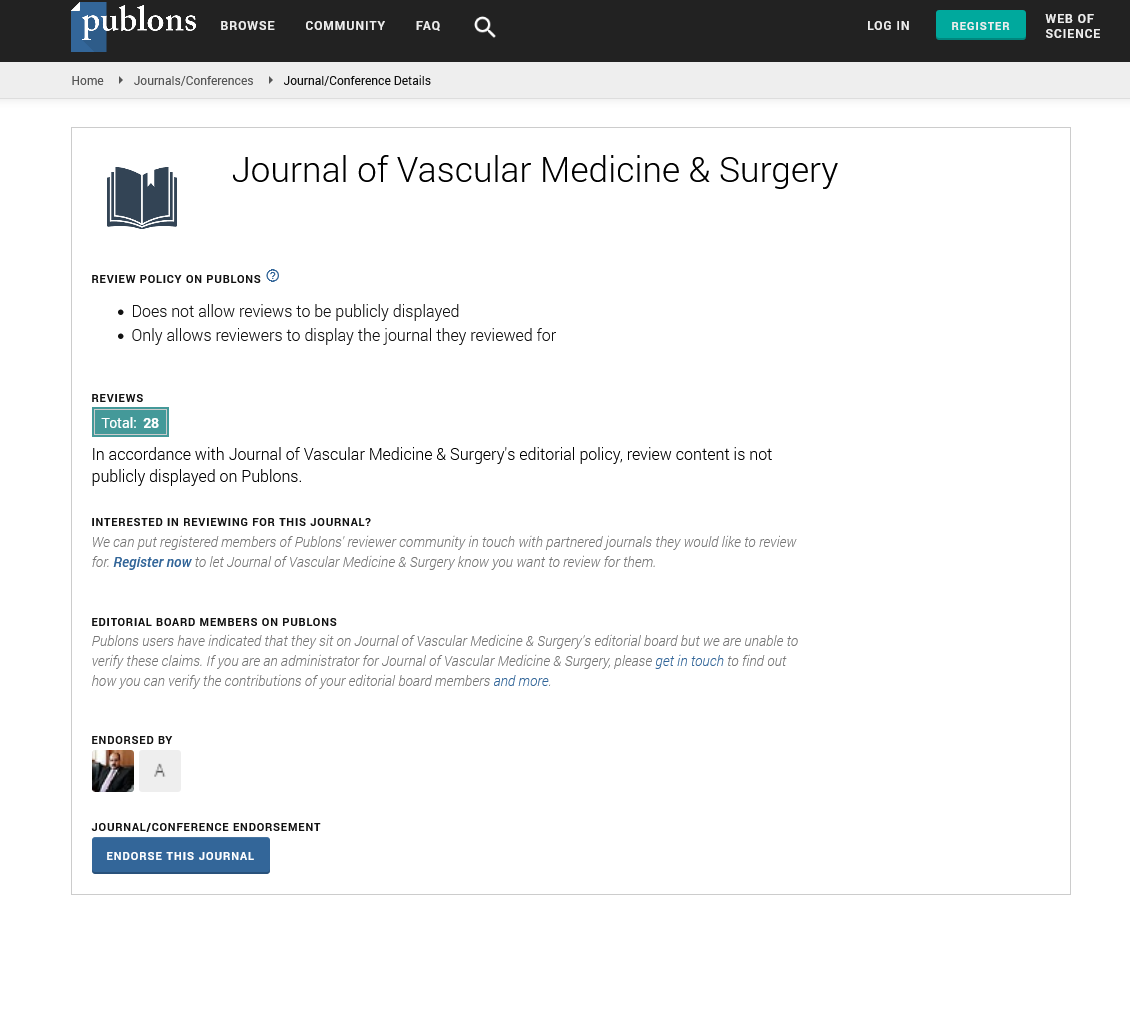Indexed In
- Open J Gate
- Academic Keys
- RefSeek
- Hamdard University
- EBSCO A-Z
- OCLC- WorldCat
- Publons
- Euro Pub
- Google Scholar
- SHERPA ROMEO
Useful Links
Share This Page
Journal Flyer

Open Access Journals
- Agri and Aquaculture
- Biochemistry
- Bioinformatics & Systems Biology
- Business & Management
- Chemistry
- Clinical Sciences
- Engineering
- Food & Nutrition
- General Science
- Genetics & Molecular Biology
- Immunology & Microbiology
- Medical Sciences
- Neuroscience & Psychology
- Nursing & Health Care
- Pharmaceutical Sciences
Micro-vascular systems on a chip
World Congress on Vascular Diseases, Medicine & Surgeons Summit
October 24-25, 2016 Chicago, USA
Kapil Pant
CFD Research Corporation, USA
Posters & Accepted Abstracts: Vasc Med Surg
Abstract:
Cellular and molecular interactions are critical to many physiological, pathological and pharmacological processes in the microvasculature. For instance, they play an important role in determining the delivery performance of therapeutics transport in vivo. Static well plate assays and in vitro fluidic devices have been instrumental in our understanding of the biological interactions. However, widely used flow chambers suffer from several limitations for studying the in vivo microvascular environment. These include (a) lack of critical morphological features (e.g., bifurcations, tortuosity), (b) inability to distinguish between healthy vs. diseased vasculature, (c) large consumable volumes, and (d) inability to support co-cultures. To overcome these limitations, we have developed SynVivo (derived from ‚??synthetic in vivo‚??) microfluidic assays for studying cell-cell and cell-drug studies in an in vivo like environment. The SynVivo devices are based on idealized and in vivo derived microvascular networks patterned onto a plastic, disposable substrate to mimic the morphological and physiological conditions observed in vivo. The devices can be functionalized using a variety of cells (e.g., endothelial, tissue, tumor) and combine two critical elements characteristic of the in vivo micro-vascular milieu: (a) 3D multi-cellular cultures to capture the realism, and (b) fluid shear and mechanical strain to capture the dynamics, thereby affording high-fidelity simulation of cell, tissue or organ physiology. Sample results from case studies on drug particle adhesion, drug transport, particle shape effects, gene delivery, cell migration and toxicity will be presented. Future applications of the platform will be discussed.
Biography :
Email: kapil.pant@cfdrc.com

